PLENARY / KEYNOTE / INVITED SPEAKERS
PLENARY SPEAKERS
Prof. Elias Stathatos
Professor Elias Stathatos was born in 1968 in Patras, Greece. He obtained his first degree in Physics from the University of Patras and then, his Ph.D. from Engineering Science Dept. also at the University of Patras. Prof. Stathatos was a postdoctoral research fellow at the University of Cincinnati, USA, at the Civil & Environmental Engineering Dept. In the period 2008-2010, he was Department Head of the Electrical Engineering Dept. in the Technological-Educational Institute of Patras. Today, he is a professor in the Electrical and Computer Engineering Dept. at the University of Peloponnese and Head of the Nanotechnology and Advanced Materials Laboratory (N&AML). He has more than 150 publications in peer review journals and six chapters in books that are recognized with more than 7100 citations (h-index=41). He is Principal/Co-Principal Investigator in 30 funded proposals, while he is a Co-Investigator in five patents related to solar energy conversion and solar cells. He has participated in more than 60 conferences, giving several plenary and invited lectures. He is a reviewer in numerous International Journals (>40) and an editorial board member of the Journal of Advanced Oxidation Technologies, Materials Science for Semiconductor Processing, International Journal of Photoenergy and Section Editor in Chief of “Optoelectronics” of the Journal “Electronics”. His research interests are focused on third-generation solar cells and their characterization. In particular, Prof. Stathatos is interested in the conversion of solar energy to electricity using dye-sensitized, quantum dot and perovskite solar cells employing nanostructured materials. Furthermore, Prof. Stathatos is also interested in electrochromic nanocomposite materials for smart windows and solar concentrators for enhanced photovoltaic performance after spectral shift.
Prof. Mehmet Eyyuphan Yakıncı
Prof. M. Eyyuphan YAKINCI completed his higher education in Malatya İnönü University as a Physics Engineer in 1984. In the same year, he started his academic life by passing assistantship exam at İnönü University Physics Department. He went to the University of Warwick in England with a YÖK scholarship in 1988 for his doctoral studies and successfully completed his doctorate in 1993 and returned to İnönü University.
In 1996, he succeeded in the Associate Professorship exam and became Assoc. Dr. In 2002 he has been appointed the title of Prof. Dr. in Malatya İnönü University. He has 108 international scientific papers and more than 950 scientific citations have been made of them. During his scientific life, he brought 5 PhD and 26 Master Students to Turkish science. He has worked as a coordinator and researcher in more than 20 national projects. He founded the Scientific and Technological Research Center and the Department of Biomedical Engineering at İnönü University and held administrative positions at various stages of the university for more than 13 years.
He came to Iskenderun Technical University in 2016 and established Biomedical Engineering here. In addition, he established the Scientific and Technological Application and Research Center with a budget from the Ministry of Development. He also served as the Dean of the Faculty of Engineering and Natural Sciences at İskenderun Technical University for 4.5 years. He is currently the head of the Department of Metallurgical and Materials Engimuneering, Faculty of Engineering and Natural Sciences, İskenderun Technical University.
E-mail: meyyuphan.yakinci@iste.edu.tr
Prof. Raşit Turan
Raşit Turan completed B. Sc. and M. Sc. degrees at the Physics Department of Middle East Technical University (METU), Türkiye. He received his Ph.D degree from University of Oslo, Norway in 1990. His main research interests have been physics and technology of semiconductor materials and devices including solar cells. He has published more than 240 scientific papers. Raşit Turan has coordinated many national and international projects. He is currently director of the Center for Solar Energy Research and Applications (ODTÜ-GUNAM).
Prof. Sezai Elagöz
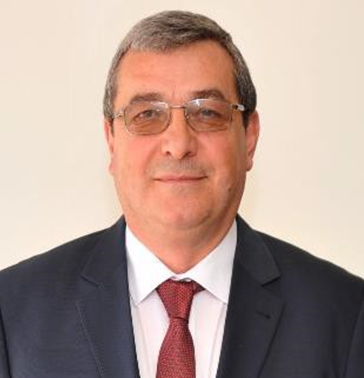 Professor Dr. Sezai ELAGÖZ was born in Sivas in 1963. He completed his undergraduate studies at the Department of Physics of Ankara University Faculty of Science and his M.Sc. and Ph.D. at the Racham Graduate School of Condensed Matter Physics at the University of Michigan in 1993. In between the years 1993-2011, He served as assistant professor, associate professor and professor in Faculty of Sciences at Cumhuriyet University and then in Faculty of Engineering, Department of Nanotechnology Engineering, for which he was one of the founders, at Cumhuriyet University.
Professor Dr. Sezai ELAGÖZ was born in Sivas in 1963. He completed his undergraduate studies at the Department of Physics of Ankara University Faculty of Science and his M.Sc. and Ph.D. at the Racham Graduate School of Condensed Matter Physics at the University of Michigan in 1993. In between the years 1993-2011, He served as assistant professor, associate professor and professor in Faculty of Sciences at Cumhuriyet University and then in Faculty of Engineering, Department of Nanotechnology Engineering, for which he was one of the founders, at Cumhuriyet University.
He also has served as Dean of the Faculty of Science and Faculty of Technology, as the chair of the Institute of Science, the Department of Physics, the Department of Nanotechnology Engineering, as a board member of the Scientific and Technological Research Council of Cumhuriyet University, member of the Board of various faculties, he also served as a member of the Board of University Senate. Besides being the founder of many postgraduate programs, he was the headof University Ethics Committee, director of 100-2000 doctoral program and has a membership of Türkiye Nanotechnology Working Group.
He is the founder of Cumhuriyet University Nanophotonic Application and Research Center (CÜNAM), Cumhuriyet University Optical Research and Application Center and Cumhuriyet University Advanced Technology Application and Research Center (CÜTAM), which is operating in the advanced technology field. He has served as a board member and head officer since the day CÜNAM was established and served as a board member of CÜTAM. He has actively taken a position in the writing, execution and finalization of the projects of the Ministry of Development for the establishment of these centers.
Professor Dr. Sezai ELAGÖZ has served as an advisor of many doctoral and master thesis programmes, published many national and international articles, he worked as a publication editor and served in several national/international projects (SSM-ASELSAN, COST, TÜBİTAK 1007, 1003, 1001, SANTEZ). He has served as a consultant in ERMAKSAN between 2013-2018, where he has been responsible of the establishment of the optoelectronic infrastructure for the production of highpower laser diodes and participated in various scientific panels
Professor Dr. Sezai ELAGÖZ had served as the Microelectronics, Guidance and Electro- Optics (MGEO) Business Sector President and the Vice President, between 13th June 2018 to 2nd November 2020. He was assigned as an advisor on 2nd November 2020. He was appointed as the Vice President of R&D Management with the Board Resolution starting from the beginning of 2021.
KEYNOTE SPEAKERS
Prof. Ali Abdolahzadeh Ziabari
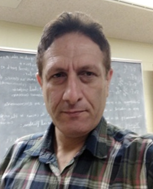 Ali Abdolahzadeh Ziabari received his B.Sc. degree in nuclear physics from Shahid Beheshti University, Tehran, Iran in 2002, the M.Sc. and Ph.D. degree in Solid State Physics from the University of Guilan, Iran. His expertise is in the field of condensed matter physics, solid-state device, optoelectronics, first principle study and molecular dynamics. Currently, as a visiting scholar, works in The University of Saskatchewan, Saskatoon, Canada.
Ali Abdolahzadeh Ziabari received his B.Sc. degree in nuclear physics from Shahid Beheshti University, Tehran, Iran in 2002, the M.Sc. and Ph.D. degree in Solid State Physics from the University of Guilan, Iran. His expertise is in the field of condensed matter physics, solid-state device, optoelectronics, first principle study and molecular dynamics. Currently, as a visiting scholar, works in The University of Saskatchewan, Saskatoon, Canada.
Prof. Hamid Reza Mashayekhi
He received the B.Sc. degree in Applied Physics from the Ferdowsi University of Mashhad, Iran, in 1990 and the M.Sc. degree in “The Physics of Laser Communication Systems” in 1994, and PhD degree in “Theoretical and Experimental studies of Back-Gated Metal-Semiconductor-Metal Photodetectors” in 2000 both from the University of Essex, UK. Both his MSc and PhD studies were founded by the ministry of Culture and Higher Education of the Islamic Republic of Iran. He is currently a Professor of Physics at the University of Guilan, Iran. His current research interests include numerical modeling of semiconductor devices and numerical simulation of magnetic field of Helmholts coils.
Prof. Husam El-Nasser
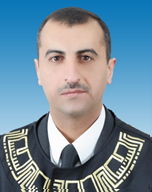 Prof. Dr. Husam El-Nasser has finished his undergraduate and Ph.D studies in Physics from Belarussian State University. He is now working in the Dept. of Physics at Al al-Bayt University in Mafraq, Jordan. He is working on the Variable Angle Spectroscopic Ellipsometer (VASE), one of main research labs in Jordan for investigation the optical properties of thin films. Prof. El-Nasser has contributed to some experimental important aspects particularly in this field and to the field of Materials Science in general; in terms of construction, testing, installation, analysis and preparation of results.
Prof. Dr. Husam El-Nasser has finished his undergraduate and Ph.D studies in Physics from Belarussian State University. He is now working in the Dept. of Physics at Al al-Bayt University in Mafraq, Jordan. He is working on the Variable Angle Spectroscopic Ellipsometer (VASE), one of main research labs in Jordan for investigation the optical properties of thin films. Prof. El-Nasser has contributed to some experimental important aspects particularly in this field and to the field of Materials Science in general; in terms of construction, testing, installation, analysis and preparation of results.
He is playing a major role in teaching physics courses, and in the field of his research interest in spectroscopy and thin films. He has a variety of technical skills that help him to perform accurate experimental work professionally, seriously. He always makes positive contribution, both to the scientific life of the university and to the Physics community in general.
Prof. El-Nasser had several administrative positions as Department Chairman of the Physics Department, Deputy Dean of the Academic and Scientific Research, Deputy Dean of faculty of Science, University Officer for European Project SRTD as well as committees member in the field of higher education in Jordan.
Prof. Izzat M. Afandiyeva
Doctor of physical science, 2019- leading researcher of the Scientific Institute for Physics Problems, professor (0,5 ) of Physical Electronics Department of Baku State University. 2012-2019- Head of scientific department of Baku State University; 1992-1998-Executive Secretary of the Head Editorial Board of the scientific Journals “Baku University news”; 1991-1992: Deputy of first Vice-President of Baku State University. Her main research interests have been physics of semiconductor materials, contact structures and nanoelectronics. She has supervised 2 Ph.D. and 3 M.Sc. and published about 120 scientific papers (h=7).
Prof. Marco Antonio Schiavon
Dr. Marco Antonio Schiavon got his Ph.D. in Inorganic Chemistry in the field of nanostructured materials at the University of Campinas - Brazil in 2002. Since 2004 he is Professor at Federal University of São João del-Rei, and since 2020 Full Professor of Inorganic Chemistry. He is also Researcher at National Council for Scientific and Technological Development (CNPq Brazil). He is interested in the application of carbon dots, colloidal semiconductor quantum dots and perovskite nanocrystals in energy conversion involving solar cells and photoelectrochemical systems.
Prof. Mustafa Muradov
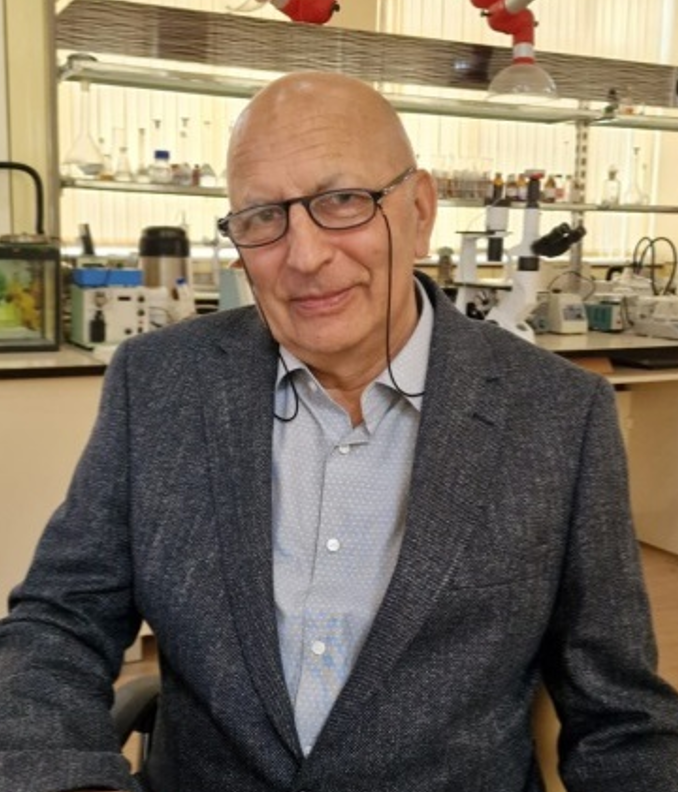 Mustafa Muradov gets his Master’s degree in Solid State Physics, from Moscow Engineering Physics Institute (1981), and a Ph.D. in Physical Electronics, from the Institute of Photoelectronics, Baku, Azerbaijan (1996). His research topics are focused on the development technology of preparation nanostructures, methods for the synthesis of ternary semiconductor nanomaterials, studying of influence technology conditions on the structure and physical properties of nanomaterials, improvement of the understanding of the basic physical processes in nanomaterials, growth and physical properties of functional and hybrid nanomaterials, investigating structural and physical properties, then using this knowledge to develop new materials for applications in sensors, energy storage devices, photocatalyst. Prof. Mustafa Muradov is a Deputy Director in the Excellent Center at Baku State University, Azerbaijan.
Mustafa Muradov gets his Master’s degree in Solid State Physics, from Moscow Engineering Physics Institute (1981), and a Ph.D. in Physical Electronics, from the Institute of Photoelectronics, Baku, Azerbaijan (1996). His research topics are focused on the development technology of preparation nanostructures, methods for the synthesis of ternary semiconductor nanomaterials, studying of influence technology conditions on the structure and physical properties of nanomaterials, improvement of the understanding of the basic physical processes in nanomaterials, growth and physical properties of functional and hybrid nanomaterials, investigating structural and physical properties, then using this knowledge to develop new materials for applications in sensors, energy storage devices, photocatalyst. Prof. Mustafa Muradov is a Deputy Director in the Excellent Center at Baku State University, Azerbaijan.
E-mail: mbmuradov@gmail.com
Prof. Nicola Morley
Prof Nicola Morley is a Professor of Materials Physics within the Department of Materials Science and Engineering at the University of Sheffield, UK. Her main research is on functional magnetic materials, investigating how the fabrication processes influence the structural and functional properties, then using this knowledge to develop new materials for applications. Her research highlights include the development of highly magnetostrictive Fe-based thin films for sensors and electric-field controllable ferroelectric/ferromagnetic structures, along with the exploration of functional high entropy alloy films as the next big thing in soft magnetic materials. Also she has used novel process techniques (SPS, ALM) to produce magnetocaloric materials for commercial applications and developed magnetostrictive actuators and sensors for structural health monitoring of aerospace components.
Prof. Nouredine Sengouga
Nouredine Sengouga was born in Seggana (Batna, Algeria) in 1962. He has obtained his bachelor in Physical Electronics from in 1985 from Batna University and obtained his PhD in Physical Electronics in 1991 from Lancaster University (UK). In 1992, he joined Biskra University as an Assistant Lecturer in the area of Semiconductor devices. He spent one year on leave at the University of Manchester (UK). In 2003, he has become a full Professor of Semiconductor devices. His main research interests are in the area of solar cells and other semiconductor devices (diodes and transistors). Professor Nouredine Sengouga has supervised tens of MSc and PhD theses and produced more than 100 publications and conference presentations. He is a reviewer for several scientific journals
Prof. Ramin Yousefi
Ph.D (Solid State Physics), University of Malaya, Kuala Lumpur, Malaysia, 2007- 2011. Ph.D Thesis Title: Morphological, Structural and Optical Studies of Undoped and Doped ZnO Nanostructures (Supervisor: Prof. Muhamad Rasat Muhamad). M.Sc. (Atomic and Molecular Physics, (Plasma Physics)), Tabriz University, Tabriz, Iran, 1995- 1997. B.Sc. (Solid State Physics), Shahid Chamran University of Ahvaz, Ahvaz, Iran, 1990- 1994. He is interested to research about Metal-Oxide and Metal-Chalcogenide nanostructures such as ZnO, Zn-Chalcogenides, Cd-Chalcogenides, PbO, Pb-Chalcogenides, Cu- Chalcogenides, and Sn-Chalcogenides as well as semiconducting/graphene and semiconducting/g-C3N4 nanocomposites for different applications such as photocatalyst, photosensors, solar-cells, and gas-sensor.
Prof. Serap Şentürk Dalgıç
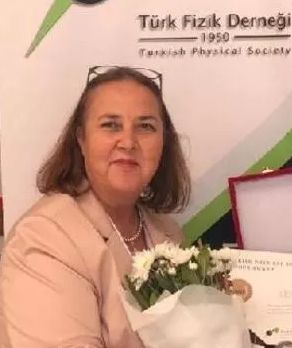 Professor Serap Şentürk Dalgıç is a Professor in the Atomic and Molecular Physics of the Physics Department at Trakya University in Edirne, Türkiye. She has received BS (1984), MS (1987) and PhD (1992) degrees in Physics. She was in the post-doctoral position at East Anglia University in Norwich-England. She visited ICTP-Italy many times. She was in the Physics Department of the University of Valladolid, Spain, for long and short periods to give courses and participated in projects. She became Professor in 2003 at Trakya University. She was a director/a member of various Academic and administrative units of Trakya University.
Professor Serap Şentürk Dalgıç is a Professor in the Atomic and Molecular Physics of the Physics Department at Trakya University in Edirne, Türkiye. She has received BS (1984), MS (1987) and PhD (1992) degrees in Physics. She was in the post-doctoral position at East Anglia University in Norwich-England. She visited ICTP-Italy many times. She was in the Physics Department of the University of Valladolid, Spain, for long and short periods to give courses and participated in projects. She became Professor in 2003 at Trakya University. She was a director/a member of various Academic and administrative units of Trakya University.
She is the author of over 48 scientific articles published in SCI journals and more than 150 conference studies at national and international conferences. Her publications received more citations (h-index 12). She was also the researcher or director of some international and national projects.
She has studied modelling and atomistic simulations on Molten Salts, Liquid Metals, Nano surfaces, Nanomaterials, Nano-Biomaterials, and Carbon-based nanomaterials. Recently, she has focused on DFT studies on molecules, atomic clusters, drug delivery systems, and molecular interactions in ionic liquids.
She has done 20 master’s/10 doctorate studies in Physics. She won the Turkish Physical Society 2021 Honorary Award.
Prof. Shadia Ikhmayies
Shadia J. Ikhmayies is an associate professor in physics. Her research is focused on producing and characterizing semiconductor thin films, and thin film CdS/CdTe solar cells. Besides, she works in characterizing materials by computation. She published 59 research papers in international scientific journals, 85 research papers in conference proceedings, and 3 chapters in books. She is the founder and editor of the book series “Advances in Material Research and Technology” published by Springer, and the editor in chief/editor of several books. Shadia is a member of the minerals, metals, and materials society (TMS) where she was the chair of the characterization committee of TMS 2016, 2017, and the leading organizer of three symposiums. Shadia is also a member of the World Renewable Energy Network/Congress (WREN/WREC), the international organizing committee and the international scientific committee in the European Conference on Renewable Energy Systems (ECRES). She is a guest editor and a member of the editorial board of several journals including JOM and the Journal of Electronic Materials. Shadia is a reviewer in 24 international journals and conferences. She got several international awards from which are the TMS Frank Crossley Diversity Award 2018, and World Renewable Energy Congress 2018 Pioneering Award.
Prof. Süleyman Özçelik
Süleyman Özçelik is a Professor in Photonics Department at Gazi University in Ankara, Türkiye. He is also the founding Director of Gazi Photonics Application & Research Center (fotonik.gazi.edu.tr) and the founding Head of Department of Photonics (ubf-fotonik.gazi.edu.tr). He received B.Sc degree in physics from Karadeniz Technical University and PhD degrees in physics from Gazi University. As the Director of Gazi Photonics Research Center, Prof Özçelik with a team of around 65 national and international researchers leads prestigious national and international R&D collaborations with academic and industry partners. His research expertise includes the development of photonic crystals, epitaxial growth, bulk single-crystal growth, growth of 2D nanomaterials, modeling, designing and fabrication of opto-electronic devices. Prof Özçelik’s team has established Türkiye’s first epitaxial growth (MBE) and bulk Germanium and Sapphire crystal growth systems, as well as pioneering the production of space-qualified solar cells. He has led more than 45 projects in the fields of advanced materials, semiconductor and optics-photonics technologies funded by national and international agencies. He has authored or co-authored over 600 scientific contributions including over 200 articles in peer-reviewed journals. He is a member of several education boards and civil society organizations, supporting and promoting R&D, researcher training, research and industry collaborations, and academia-public engagement. He has also given keynote/invited talks in national and international conferences. In 2019, he has received an Honor Award from the Turkish Physical Society for his distinct contributions to the discipline of physics.
Prof. Wazirzada Aslam Farooq
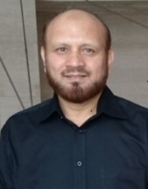
Dr. W. Aslam Farooq did his Ph.D from Imerial College London in 1992 in the field of Magneto Optical Spectroscopy using tunable dye laser and VUV laser beam. Presently he is working as Director for Research American Association for Advances in Functional Materials (AAAFM). Dr Farooq has published more than 200 papers in ISI journals.
He has completed several projects regarding Quantum Dot Solar Cell, Laser Spectroscopy, Synthesis and Characterization of nano-materials, application of lasers in early diagnosis of cancer and Red Palm Weevil. Dr Farooq has vast experience in laser applications and nano technology. He is co-founder of Pakistan Institute of Laser and Optics, Islamabad Pakistan. Currently he is working in laser applications, synthesis and characterization of nano-structured materials and polymer nano composites. He is collaborating with the following universities
1. Firat University Elazig TÜRKİYE
2. Mississippi State University USA
3. G C University Lahore Pakistan
4. Institute of Fundamental and Frontier Science , University of Electronics Science and Technology, China, 610054
Chengdu, Sichuan, China
5. GC University, Faisalabad, Pakistan
6. Department of Science and Technology, Campus Norrköping, Linköping University, SE-60174 Norrköping, Sweden
7. King Khalid Unversity Abba Saudi Arabia
Prof. Yousef Sobouti
Yousef Sobouti was born in 1932 in Zanjan. He received his primary and secondary education in his hometown, and studied physics in the University of Tehran. Upon obtaining his B.Sc. degree, he became a high school physics teacher in Tabriz. In 1958, he went to the University of Toronto for an M.Sc. degree, and later in 1960 to the University of Chicago for a Ph.D. degree in astronomy and astrophysics under the supervision of renowned physicists, including Subramanian Chandrasekar and Joseph Chamberlain. In 1963, He took up a lecturer position in Newcastle University in England.
In 1964, he returned to Iran and was appointed as an associate professor in Shiraz University. His employment in Shiraz coincided with some major developments in higher education in Iran, and Sobouti had a significant contribution to the formation of modern university system in Shiraz. He was instrumental in the establishment of M.Sc. and Ph.D. programs in Shiraz University. In 1972, he laid the foundations for the creation of the Biruni Observatory in Shiraz. The observatory was launched in 1977 and to date is the only functional center of its kind in the whole of the country. Sobouti’s commitment to education and research in basic sciences led him in 1991 to establish the Institute for Advanced Studies in Basic Sciences in Zanjan (IASBS). Today, IASBS is one of Iran’s leading institutions in higher education and academic research, with more than 1000 graduates at M.Sc. and Ph.D. level.
In the past 15 years, Sobouti has involved himself in the topic of climate change and global warming. He engages in public education and teaches university courses on climate change and has written manuscripts and books on the topic.
Professor Sobouti has published more than 100 research articles in peer-reviewed international journals, and has authored and translated six books. He has supervised more than 50 graduate students. He is a fellow of the Iranian Academy of Sciences, as well as The World Academies of Sciences (TWAS), and is a member of numerous Iranian and international scientific societies. He previously served as the president of the Physical Society and of the astronomical Society of Iran. He has received numerous scientific awards, among them a book-of-the-year award, research awards from the Ministry of Science, Research, and Technology of Iran, the special medal lecture in physics of TWAS, and the award of the Regional TWAS for institution building.
E-mail: sobouti@iasbs.ac.ir
Web: https://orcid.org/0000-0002-4356-1460 , https://iasbs.ac.ir/~sobouti/
Assoc. Prof. Yashar Azizian-Kalandaragh
Yashar Azizian-Kalandaragh was born in Namin, Ardabil, Iran, in 1978. He received the B.Sc. degree from Mohaghegh Ardabili University, Ardabil, Iran, in 2002, the M.Sc. degree from Guilan University, Rasht, Iran, in 2005, and the Ph.D. degree from Baku State University, Baku, Azerbaijan, in 2008, all in physics. He is involved in theoretical and experimental consideration of surface physics, biophysics, and fluid dynamics.
Assistant Prof. Saira Bibi
Dr. Saira Bibi received her Ph.D. degree in Chemistry in 2017 from Hazara University Mansehra Pakistan. She was also the research fellow of University of Bath UK, University Sovies Monc Blank, France and Pakistan Institute of Engineering and Applied Sciences (PIEAS) Islamabad. Currently She is working on the synthesis and modifications of bio-nanocomposites and their application (water engineering, agriculture, bio-sensing etc.) in the department of Chemistry Hazara University Mansehra. She has experience on sonochemical synthesis/modification techniques, in addition to have expertise on the synthesis of polymerized ionic liquids/conductive material synthesis.
Dr. Monika Voigt
Head of Research and Development (R&D), Head of Product Development, GS-Bavaria, Nuremberg, Germany: Recycled Tungsten nanoparticles for industrial applications. She has many scientific articles and a total of 1688 citations from these articles, and the h index is 21. A topic for the talk:"Tungsten based functional Nanoparticles from recycling for thermosets, thermoplastics and GFRP- industrial applications within reach"
INVITED SPEAKERS
Prof. Abdullah Yıldız
Abdullah Yıldız received his PhD in physics from Gazi University (Türkiye) in 2008 with a study on epitaxial ternary III-V semiconductor compounds. He worked on the carrier transport phenomena associated with disorders. Thereafter he switched to the field of metal-oxide thin films and nanostructures for various optoelectronic device applications. With the research group he founded (yildizresearchgroup.com), he established a laboratory where many students carry out their graduate thesis studies. His group’s ongoing research interests concentrate on developing new materials for dye sensitive solar cells, perovskite solar cells, and photodetectors, and understanding and controlling the optoelectronic processes occurring within the devices. He is the author of 101 SCI articles.
Prof. Asif Ali Qaiser
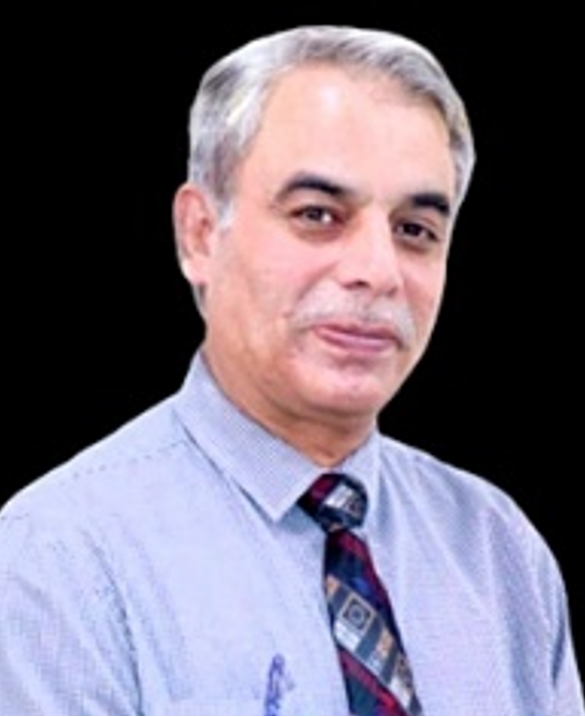 Dr. Asif Ali Qaiser is currently serving as Professor and Chairman of Department of Polymer and Process Engineering, University of Engineering and Technology (UET) Lahore, Pakistan since 2013. He graduated in Chemical Engineering and later completed MSc Eng. from UET Lahore in 1997 and 2006, respectively, and earned his PhD from University of Auckland, New Zealand in 2010. He has served in National Scientific Commission (NESCOM) Pakistan before joining UET Lahore in 2004. He has also worked as a polymer consultant for Fisher & Paykel, New Zealand, in 2008.
Dr. Asif Ali Qaiser is currently serving as Professor and Chairman of Department of Polymer and Process Engineering, University of Engineering and Technology (UET) Lahore, Pakistan since 2013. He graduated in Chemical Engineering and later completed MSc Eng. from UET Lahore in 1997 and 2006, respectively, and earned his PhD from University of Auckland, New Zealand in 2010. He has served in National Scientific Commission (NESCOM) Pakistan before joining UET Lahore in 2004. He has also worked as a polymer consultant for Fisher & Paykel, New Zealand, in 2008.
Dr. Qaiser’s research interests include polymer membranes, intrinsically conducting polymers, polymer rheology and processing, and circular plastic economy where he has taught various courses and published papers in these diverse areas of expertise. As the membrane group leader at the UET, Dr. Qaiser has supervised many projects on membranes for electrodialysis, fuel cell, pervaporation and nanofiltration applications. He is currently working on three funded projects on advanced manufacturing, polymer blends and fuel cell membranes.
As additional appointments, Dr Qaiser has been working as Director Students Affairs of the University since 2015. Moreover, he has been working as Advisor Pakistan Membrane Society and Convenor of Provincial Technical Committee on single use plastic for last three years.
E-mail: asifaliqaiser@uet.edu.pk
Prof. İlke Taşçıoğlu
İlke TAŞÇIOĞLU was born in Ankara, Türkiye in 1983. She completed her undergraduate education in Gazi University, Physics Department in 2005. She received M.S. and Ph.D. degrees in Physics at Gazi University, Institute of Science and Technology in 2008 and 2012, respectively. She worked as a researcher at the Photonics Application and Research Center during her doctorate and as a postdoctoral researcher at the Middle East Technical University, Solar Energy Research and Application Center (GÜNAM) from 2012 to 2015. She is currently working as a professor of the department of Mechatronics Engineering and the vice dean of Engineering and Architecture Faculty at Nişantaşı University. Her current research interests include the electrical and dielectric properties of MS, MIS, and MOS type structures, heterojunctions and solar cells. She has 26 publications and more than 500 citations in Web of Science.
E-mail: ilke.tascioglu@nisantasi.edu.tr
Prof. Mustafa Muammer Demir
Dean of Engineering Faculty at İzmir Institute of Technology, Dr. Mustafa M. Demir did his MS and Ph.D. studies in Materials Sciences and Engineering Programme at Sabancı University, Türkiye, in 2001 and 2004 respectively. He completed his post doc from Max Planck Polymer Research Institute in Mainz, Germany. Since 2007, he is serving as Professor at Izmir Institute of Technology, Türkiye. Dr. Mustafa M. Demir is also the Chairman of Department of Materials Science and Engineering of the Institute. He has over 110 publications in peer-reviewed journals. His main research interests are Waste water Treatment, Material Characterization, Material Characteristics, Materials, Nanostructured Materials and Nanomaterials Synthesis. He will be speaking on polymer/particle composites.
Prof. Recep Şahingöz
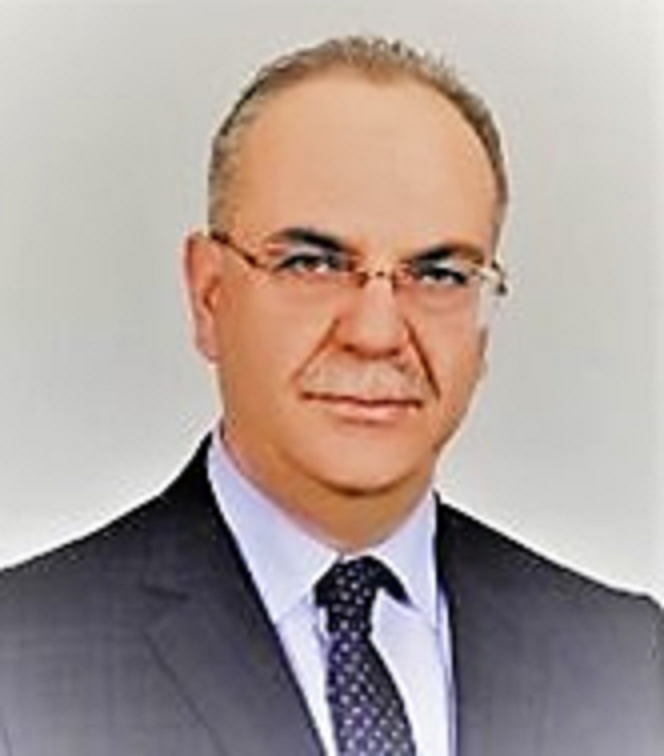 Prof. Recep ŞAHİNGÖZ graduated from Ankara University Faculty of Science, Department of Physics. He completed his master degree at Gazi University. He carried on his studies at the University of Bath in the UK at the Department of Physics (1988-1990). He completed his PhD studies at Gazi University on "Metalic Glasses and their magnetic and electrical properties"(1997). He worked as a visiting researcher at Sheffield University Physics Department Advanced Magnetic Materials Laboratory in England between (2003-2004). He is still the Head of the Department of Physics at Bozok University and has participated in many international meetings with oral and poster presentations. He has many published works in international SCI comprehensive journals. His research interests, metallic glasses, production magnetic properties such as Hc, Magnetoresistance, magnetic domains, annealing effects, magnetic thin films, organic thin films, MEMS, etc, The topic that he is talking about “Metallic Gasses and Applications”. He is the editor of a book on Magnetism and Magnetic Materials.
Prof. Recep ŞAHİNGÖZ graduated from Ankara University Faculty of Science, Department of Physics. He completed his master degree at Gazi University. He carried on his studies at the University of Bath in the UK at the Department of Physics (1988-1990). He completed his PhD studies at Gazi University on "Metalic Glasses and their magnetic and electrical properties"(1997). He worked as a visiting researcher at Sheffield University Physics Department Advanced Magnetic Materials Laboratory in England between (2003-2004). He is still the Head of the Department of Physics at Bozok University and has participated in many international meetings with oral and poster presentations. He has many published works in international SCI comprehensive journals. His research interests, metallic glasses, production magnetic properties such as Hc, Magnetoresistance, magnetic domains, annealing effects, magnetic thin films, organic thin films, MEMS, etc, The topic that he is talking about “Metallic Gasses and Applications”. He is the editor of a book on Magnetism and Magnetic Materials.
Prof. Serap Güneş
 Prof. Serap Güneş is a faculty member at Yıldız Technical University, Department of Physics. After completing her undergraduate and graduate studies at Yıldız Technical University, she continued her doctoral studies at Johannes Kepler University Linz (Austria) in 2002. In 2006, she completed her doctorate under the supervision of Niyazi Serdar Sarıçiftçi. In 2007, she has has been appointed as Assistant Professor in Solid State Physics at Yıldız Technical University, Department of Physics. In 2009, she received the title of Associative Prof. At Yıldız Technical University, Physics. Since 2014 she serves as a full professor at Yıldız Technical University, Department of Physics.
Prof. Serap Güneş is a faculty member at Yıldız Technical University, Department of Physics. After completing her undergraduate and graduate studies at Yıldız Technical University, she continued her doctoral studies at Johannes Kepler University Linz (Austria) in 2002. In 2006, she completed her doctorate under the supervision of Niyazi Serdar Sarıçiftçi. In 2007, she has has been appointed as Assistant Professor in Solid State Physics at Yıldız Technical University, Department of Physics. In 2009, she received the title of Associative Prof. At Yıldız Technical University, Physics. Since 2014 she serves as a full professor at Yıldız Technical University, Department of Physics.
She worked as an executive in many R&D projects funded by Tübitak in the field of energy. In 2022, she was entitled to be supported within the scope of Tübitak Bideb- 2247-A National Lead Researcher program. She worked as a researcher between 2004- 2006 in the 6th Framework European Union project, which was carried out by internationally well-known scientists (Order Prof. Niyazi Serdar Sarıçiftçi, under the coordination of Prof. Michael Graetzel).
Awarded by the Turkish Physical Society in 2007 for her work in the field of Physics and Energy, she won the “Prof. Şevket Erk Young Scientist Award” and “the Unesco Loreal Support for Women in Science Award” in 2009 for her project work. Also given by the Turkish Physical Society in 2017, she won the “Prof. Engin Arık Scientist Award”. She won the “Women Energizing Turkey Award” given by the Ministry of Energy in 2022. She carried out short-term scientific studies in Austria granted by the European Science Foundation (ESF) between 2007-2010.
She is the author of 5 book chapters published in the field of energy. She participated in many international conferences as an invited speaker to present his work in the field of energy.
Prof. Serap Güneş has published numerous scientific publications in internationally indexed (SCI/SCI-Expanded), highly influential and respected journals on the generation of electrical energy from solar energy using cheap and easy methods.
Prof. Theresa Egbuchunam
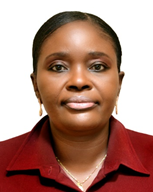 Director, University Linkages, Federal University of Petroleum Resources, Nigeria, a Professor of Materials Chemistry in the Department of Chemistry at the First Petroleum University in Africa. She also serves as the Director of University Linkages Unit; a unit which coordinates all kinds of academic linkages and explores areas of cooperation with corporate organizations.
Director, University Linkages, Federal University of Petroleum Resources, Nigeria, a Professor of Materials Chemistry in the Department of Chemistry at the First Petroleum University in Africa. She also serves as the Director of University Linkages Unit; a unit which coordinates all kinds of academic linkages and explores areas of cooperation with corporate organizations.
Professor Egbuchunam earned a PhD in Chemistry in 2007, from University of Benin, Benin City, Nigeria. Since 2007, she has been with the Department of Chemistry where she teaches in areas of Physical, Polymer and Materials Chemistry. Her research interests are in Chemistry of Polymer/Clay Materials, Environmental and Pollution Control and Nanotechnology and she has carried out research extensively in her area of expertise in Nigeria and Türkiye culminating into academic publications of over 40 scientific articles in many international and national journals dedicated to materials and chemistry research. She will be speaking on Bionanocomposites in Food Packaging Materials.
( Address: Department of Chemistry, Federal University of Petroleum Resources, NIGERIA / E-mail: egbuchunam.theresa@fupre.edu.ng )
Prof. Turgut Baştuğ
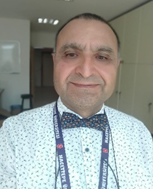 Dr. Turgut Baştuğ did his Ph.D. studies in physics at Kassel University, Germany, in 1994. He did his post at Kyoto University, Japan, after that he worked research fellow at Japan Atomic Energy Agency in Ibaraki, Japan. He returned to Kassel, Germany with a special Humboldt grand in 2000. All the time up to 2002 he interested in Quantum mechanical calculations of electronic and geometrical structures of atoms, molecules and clusters and surfaces, relativistic effects in the physics and chemistry of heavy elements, density functional applications in heavy atoms, molecular dynamics simulations: from small clusters to biological molecules. At the beginning of 2002 he moved to Canberra, Australia and start to work on Biophysics: modeling and simulation of ion channels and transporters. He continued his work as senior research fellow at the Sydney University, Australia. Dr. Baştuğ moved to TOBB ETU, Ankara as a full professor. Until 2018 he worked there, since then he works at the School of Medicine, Hacettepe University.
Dr. Turgut Baştuğ did his Ph.D. studies in physics at Kassel University, Germany, in 1994. He did his post at Kyoto University, Japan, after that he worked research fellow at Japan Atomic Energy Agency in Ibaraki, Japan. He returned to Kassel, Germany with a special Humboldt grand in 2000. All the time up to 2002 he interested in Quantum mechanical calculations of electronic and geometrical structures of atoms, molecules and clusters and surfaces, relativistic effects in the physics and chemistry of heavy elements, density functional applications in heavy atoms, molecular dynamics simulations: from small clusters to biological molecules. At the beginning of 2002 he moved to Canberra, Australia and start to work on Biophysics: modeling and simulation of ion channels and transporters. He continued his work as senior research fellow at the Sydney University, Australia. Dr. Baştuğ moved to TOBB ETU, Ankara as a full professor. Until 2018 he worked there, since then he works at the School of Medicine, Hacettepe University.
He has over 70 publications in peer-reviewed journals. His research interest includes Biophysics: modeling and simulation of ion channels and transporters, Computational biophysics, Statistical mechanics, Physical chemistry, Bio-nanotechnology, Ion channels, Membranes, and membrane proteins.
He has more than 75 publications in peer review journals that are recognized with more than 1500 citations (h-index=24). He will be speaking on nonequilibrium free energy calculations for biomolecules.
( Address: School of Medicine, Hacettepe University, Ankara, TÜRKİYE / E-mail: turgut.bastug@hacettepe.edu.tr )
Assoc. Prof. Bekir Satılmış
Assoc. Prof. Bekir Satılmış graduated from the Department of Chemistry, Gazi University, in 2008. He obtained MSc and PhD in Chemistry from The University of Manchester in 2011 and 2015, respectively, with a scholarship from the Republic of Türkiye Ministry of National Education. Dr. Satilmis`s PhD research focussed on the selective uptake and gas transport in microporous polymers. Then, he joined the Department of Chemistry at Kirsehir Ahi Evran University as a Research Assistant Doctor. In the meantime, he continued his research at the Institute of Materials Science & Nanotechnology, National Nanotechnology Research Center (UNAM) at Bilkent University as a visiting researcher. Afterward, he joined Kırşehir Ahi Evran University Vocational School of Health Services, Department of Medical Services and Techniques, as an Assistant Professor in 2019, and he received an Associate Professor title in 2021. Then, he continued his research as a visiting academic at the Department of Chemical Engineering, National Cheng Kung University (NCKU), a well-known university in Taiwan. Currently, he is working at Kırşehir Ahi Evran University, and his research interests include Polymers of Intrinsic Microporosity, membranes, functional nanofibers, fibrous materials, and their applications in gas separation, adsorption, environmental/filtration, catalysis and nanocomposites. The topic that he is talking about “Polymers of Intrinsic Microporosity membranes and their applications”.
Assoc. Prof. Enes Yiğit
Enes Yigit received the M.S.E. and Ph.D. degrees from the Department of Electrical and Electronics Engineering, Mersin University, Mersin, Türkiye, in 2007 and 2013, respectively. From 2004 to 2007, he was a Research Assistant with the Department of Electrical and Electronics Engineering, Mersin University, where he was an Instructor with the Technical Science Vocational High School, from 2007 to 2014. In 2015, he completed his post-doctoral research with the Department of Electrical Engineering, The University of Texas at Arlington, Arlington, TX, USA. From 2015 to 2018, he was an Assistant Professor with the Department of Electrical and Electronics Engineering, Karamanoglu Mehmetbey University, Karaman, Türkiye. He is now an Associate Professor with the Department of Electrical and Electronics Engineering, Bursa Uludag University, Bursa, Türkiye. His current research interests include SAR/ISAR and GPR imaging, artificial intelligence techniques, radar absorber material design, and optimization algorithms for radar applications. Dr. Yigit was a recipient of the Young Scientist Award by the International Union of Radio Science (URSI) Commission-F in 2011.
Assoc. Prof. Hatice Kanbur Çavuş
Hatice Kanbur Çavuş graduated B.Sc. from Erciyes Üniversity, M.Sc. and Ph.D. degrees from Gazi University, in Türkiye, in 2003, 2005 and 2008, respectively. Her current research interests include the preparation of Schottky diodes, organic thin films, solar cells and the investigation of their electrical and optical properties. She is currently Associate Professor Dr. at Yozgat Bozok University, Department of Physics.
Assoc. Prof. İkram Orak
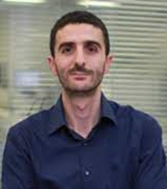 İkram Orak was received the B.Sc. and Ph.D. degrees in physics from Ataturk University, Erzurum, Türkiye, in 2008 and 2013, respectively. He worked as a post-doc at Bilkent University 2014-1016. He is currently an Associate Professor with the Vocational School of Health Service, Bingöl University. He has more than 60 articles published. His current research interests include especially the fabrication of MOS and MIS structures, flash memory devices, and photo sensing applications for organic and inorganic structure.
İkram Orak was received the B.Sc. and Ph.D. degrees in physics from Ataturk University, Erzurum, Türkiye, in 2008 and 2013, respectively. He worked as a post-doc at Bilkent University 2014-1016. He is currently an Associate Professor with the Vocational School of Health Service, Bingöl University. He has more than 60 articles published. His current research interests include especially the fabrication of MOS and MIS structures, flash memory devices, and photo sensing applications for organic and inorganic structure.
Assoc. Prof. Saim Emin
Saim Emin is an associate professor of chemistry at the University of Nova, Slovenia. Before joining the University of Nova Gorica he spent a year as a postdoc at the National Institute of Materials Sience, Japan. He obtained his master and PhD degrees in 2017 and 2010 from Saitama University, Japan. His research focuses on synthesis of inorganic materials, electrocatalytic hydrogen generation, photoelectrocatalysis and in photovoltaics. Dr. Emin has co-athored more than 40 scientific papers and gave more than 15 invited talks. He served as chair of the International Conference on Functional Materials in 2017, 2018, 2019, and 2022 organized by the European Nanoscience and Nanotechnology Association. He has been a recepient of the prestigeous Marie-Curie Career Integration Grant, European Commission and has taken part as a principal investigator in bilateral/trilateral research projects between Slovenia-Türkiye (2013 – 2014), Slovenia-China (2015-2017), Slovenia-Israel (2018-2020), Slovenia-Poland-Austria (2021-2024). Dr. Emin is a founder of the European Nanoscience and Nanotechnology Association.
Assoc. Prof. Selçuk Demirezen
Selçuk Demirezen: received his B.Ed. degree from Ondokuz Mayıs University, M.Sc. and Ph.D. degrees from Gazi University, Ankara, Türkiye, in 1999, 2001, and 2010, respectively. He is currently Asscociate Professor, Amasya University. His research interests includes polymeric Schottky type electronic devices, metal–insulator–semiconductor junctions, solar cells, photodiode and their electrical and dielectric properties depend on frequency, temperature, radiation and illumination.
Assoc. Prof. Serhat Orkun Tan
Serhat Orkun Tan was born in Karabük, Türkiye in 1979. He received the B.S. degree from the Electrical and Electronics Engineering Department, Gaziantep University, Gaziantep, Türkiye, in 2005, and the M.S. and Ph.D. degrees from the Electrical and Electronics Engineering Department, Karabük University, Karabük, Türkiye, in 2013 and 2016, respectively. From 2005 to 2009 and 2010 to 2011, he was an Electrical Engineer with Erdemir, Zonguldak, Türkiye and NOV Asep Elmar TR, Kocaeli, Türkiye, respectively. He is currently a Assoc. Prof. with the department of Electrical Engineering, Technology Faculty, Karabük University. His current research interests include the electrical and dielectric properties of Schottky diodes, MS, MIS, and MOS structures, and solar cells. Having h-index=15, he is the author of more than 20 articles and received more than 500 citations to these articles. Dr. Tan received many certificates and awards by participating several international symposiums.
Assoc. Prof. Yeşim Moğulkoç
Yeşim Moğulkoç has an expertise in materials modelling using first principles calculations via density functional theory and beyond. She received a PhD in Physics Engineering in 2013 (Ankara University). She was supported by the Turkish Physics Foundation Scholarship for 5 years. In 2015, she had a postdoctoral position in Theory of Condensed Matter Group (www.ru.nl/tcm) at Radboud University (The Netherlands) under Turkish Scientific Council (TUBITAK) fellowship. She has attended many scientific organizations and co-authored more than 40 articles. She is contributing/contributed to several funded national projects (TUBITAK and Ankara University). Her research areas and fields of interest: theory of condensed matter physics, density functional theory and beyond, modelling and comprehensive electronic band structure calculations, 2D materials, molecular adsorption, spin-orbit interaction, 2D magnetism, many-body effects, spin-valves. She has a partnership with European FLAG-ERA project. She is one of principal investigator for 2D magnetic memories project.
Assist. Prof. Cengiz Şen
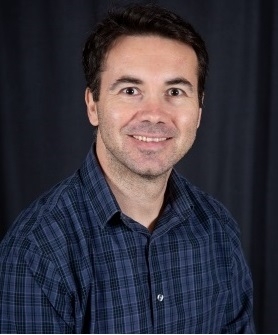 Strongly correlated electron systems, Monte Carlo algorithms, many-body techniques, quantum machine learning, statistical modeling, optimization, network analytics and complex systems.
Strongly correlated electron systems, Monte Carlo algorithms, many-body techniques, quantum machine learning, statistical modeling, optimization, network analytics and complex systems.
Lamar University, Beaumont, Texas, Assistant Professor August 2018 - present
Lamar University, Beaumont, Texas, Instructor August 2013 - August 2018
Clarion University, Clarion, Pennsylvania, Adjunct Faculty August 2012 - June 2013
Oak Ridge National Laboratory, Oak Ridge, Tennessee, Visiting Research Associate July, 2008 - August 2012
University of Tennessee, Knoxville, Tennessee, Postdoctoral Fellow September, 2009 - August 2012
Louisiana State University, Baton Rouge, Louisiana, Postdoctoral Fellow January, 2009 - September, 2009
University of Cincinnati, Cincinnati, Ohio USA, Postdoctoral Fellow August, 2007 - January 2009
Regular Referee for the Physical Review Journals, Physics Letters, Eur. Phys. J. B, Inorganics, and others.
Session Chair, “Condensed Matter", Joint Spring 2016 Meeting of the Texas Sections of APS, AAPT, and Zone 13 of SPS, Beaumont, TX (2016).
Session Chair, “Metal-Insulator Phase Transitions II", American Physical Society March Meeting, Dallas, TX (2011).
Member of the American Physical Society, 2001 - present.
Faculty Adviser, Sigma Phi Delta, Beta-Gamma Chapter, Lamar University, 2015 - present.
FacultyAdviser, The Society for Collegiate Leadership and Achievement, LamarUniversity, 2015 - present.
Faculty Adviser, Brains-Muscle-Talent Boxing Club, Lamar University, 2015 - present.
Participated on the Organizing Committee of the Joint Spring 2016 Meeting of the Texas Sections of APS, AAPT, and Zone 13 of SPS, Lamar University, 2016.
Participated on the Departmental SACS Review committee, Lamar University, 2017.
Assist. Prof. İmran Akça Avcı
B. Imran Akca received the B.Sc. degree from the Department of Electrical and Electronics Engineering and the M.Sc. degree from the Institute of Material Science and Nanotechnology both from Bilkent University, Ankara, Türkiye, in 2006 and 2008, respectively. She is currently working toward the Ph.D. degree in the area of integrated optics in the Integrated Optical MicroSystems Group, MESA+ Institute for Nanotechnology, University of Twente, Enschede, The Netherlands., Her research interests include designing integrated arrayed waveguide grating spectrometers for optical coherence tomography systems.
Dr. Mohammad Hussein AL-Dharob
“Self-Cooling of PV Modules Using a Thermal Dissipation Nano Ceramic Coating”
- Ph.D in Solid State Physics and Nanotechnology from Suleyman Demirel University in Türkiye
- Head of the nanotechnology team at the Ministry of Industry and Minerals.
- Member of the Arab Association for Nanotechnology and Materials Engineering of the Federation of Scientific Research Councils at the League of Arab States.
- Consultant at the Energy and Environmental Research Center in the Industrial Research and Development Authority.
- Consultant at the Corrosion Center at the Industrial Research and Development Authority.
- I have more than 12 research published in international journals. With 76 citations.
- We have a number of patents in the field of nano-coatings.
- We have more than 5 large projects in cooperation with local companies to develop their products using nanotechnology.
- Consultant in the use of nanotechnology in the field of solar energy.
- Teaching at Karkh University of Science / College of Science.
(E-mail: mscmohammed@yahoo.com, dr.m.aldharob@gmail.com, dr.m.aldharob@kus.edu.iq)
Dr. Özgür Polat
Özgür Polat has worked as a senior researcher at Central European Institute of Technology. He received his Ph.D. in physics at The University of Tennessee Knoxville in 2009. After that he continued his research as a post-doc at Oak Ridge National Laboratory (ORNL). As a principal investigator he completed different research projects, which were funded by The Scientific and Technological Research Council of Türkiye and the European Science Foundation and Czech Education Ministry. He has more than 15 years of research experience with fabrication and characterization of thin films and nanostructures. So far, He has investigated a wide range of materials such as topological insulators, semiconductors, superconductors, multiferroics and so on.
